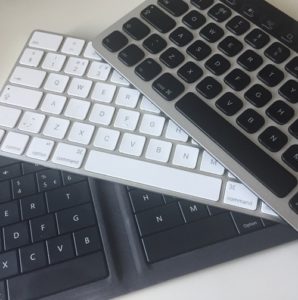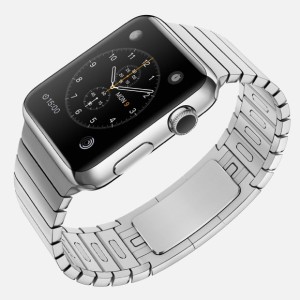Earlier this week I needed to get a photograph of a keyboard for a colleague on a project. Easy, I said, do you want a shot of the two I carry in my bag or of the three on my desk?
Easy, they said right back, you’re scaring us now and we’re just going to be over here, phoning other writers and a few medical experts.

Look, I can make my keyboard obsession seem perfectly normal and healthy if you’ll just let me tell you two things. One is that, excuse me, plenty of writers through the years have fixated on their 2B pencils or expensive fountain pens, I’m just ahead of the technology curve.
Okay. That didn’t work. Fine. This will. I can make the keyboard stuff seem perfectly sensible by blowing it out of the water with something worse.
For by coincidence, someone else asked me two days ago what I write in. I like her so I should’ve just said “English” rather than being boring for an hour but, pretend to be shocked, I chose the boring option. For an hour I answered that I write in Microsoft Word. And Apple Pages. Scrivener. Ulysses, Final Draft. Evernote. Apple Notes. Drafts 4. OmniOutliner. DEVONthink.
I’ve weaned myself off also using Simplenote. I never quite got into Bear Notes, Typed, Vesper, BBEdit, MarsEdit or the various flavours of WordPress but there’s still time. Ooooh, also Slack.
What I don’t understand is how I use all of these apps every day and for whatever it is that I’m writing. Without thinking, I automatically know which one I’m going to work in. That’s a bit bleedin’ obvious when I’m writing scripts because that’s what Final Draft is for – except, mind you, Scrivener is good for scriptwriting and some places I write for are less fussed about formatting and more fussed that you must deliver in Word.
So, yeah, occasionally I can’t find a piece of work because I don’t remember which app I wrote it in, but that’s just normal, everyday sane first-world problems.
What I very much don’t understand, though, is how writing can physically feel so different in each of these apps, on each of my dozen current projects. In every case I’m typing on the same keyboards into the same machines, iPad, iPhone and Mac, but they feel different. Seriously. Also, when I’ve been writing in Ulysses for iPad using an external keyboard and then go to use Scrivener for Mac with a very similar external keyboard, my fingers react differently.
A pianist I know says she finds the same thing when she goes between a Church organ and a regular piano.
I can understand that for her yet can’t explain that great difference I find where there surely can’t be any. It’s as well that I’m not fussed about justifying it as I can’t. And you may have been looking at me funny for the last couple of minutes but I’ve been thinking about this stuff for years.
Which is why there is one thing that I do understand about my fussing over keyboards and about my constant search for the next thing to write in.
It’s because that’s a damn sight easier than searching for the next thing to write.
That’s what I should’ve told my what-do-you-write-in friend: I write in the tiny amounts of time between my having been able to successfully distract myself.
She was asking, incidentally, because she’s been using Word and knows there are alternatives. I showed her all the ones on the iPad I had with her and some appealed, some didn’t, but we talked about what she wanted and ended up agreeing that Word is fine for her. It’s fine enough and she knows it well so she’ll stick with that.
So apparently I can cut through the crap when it’s someone else’s writing, I can see clearly what they need and how they’re just postponing writing. I can see that just making any decision about an app or a keyboard is better for everybody.
Except me. I’ll definitely crack on with this collection of Time stories I’m writing, though I’ll just wait until the new update to OmniOutliner for iPad is out.
